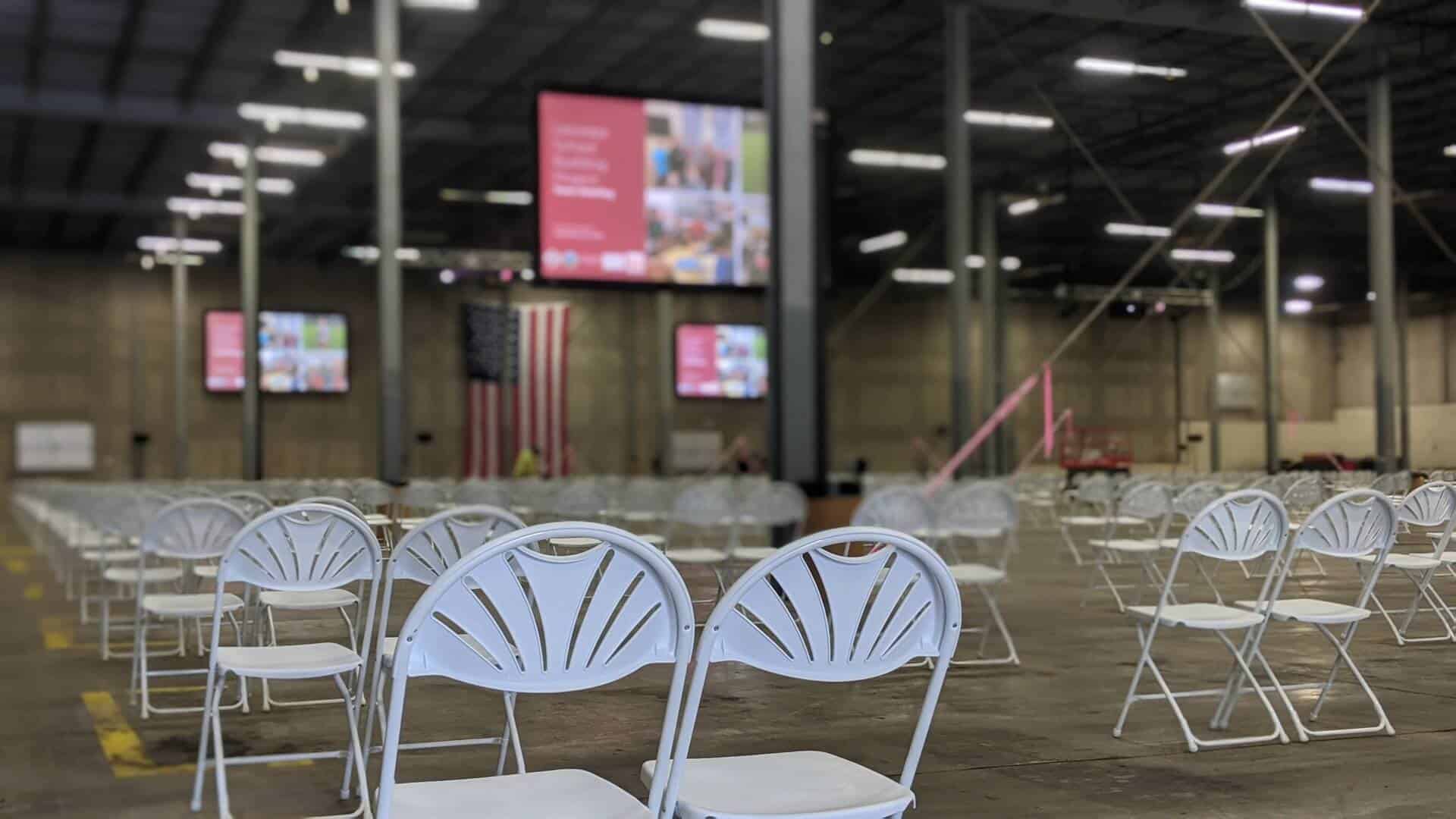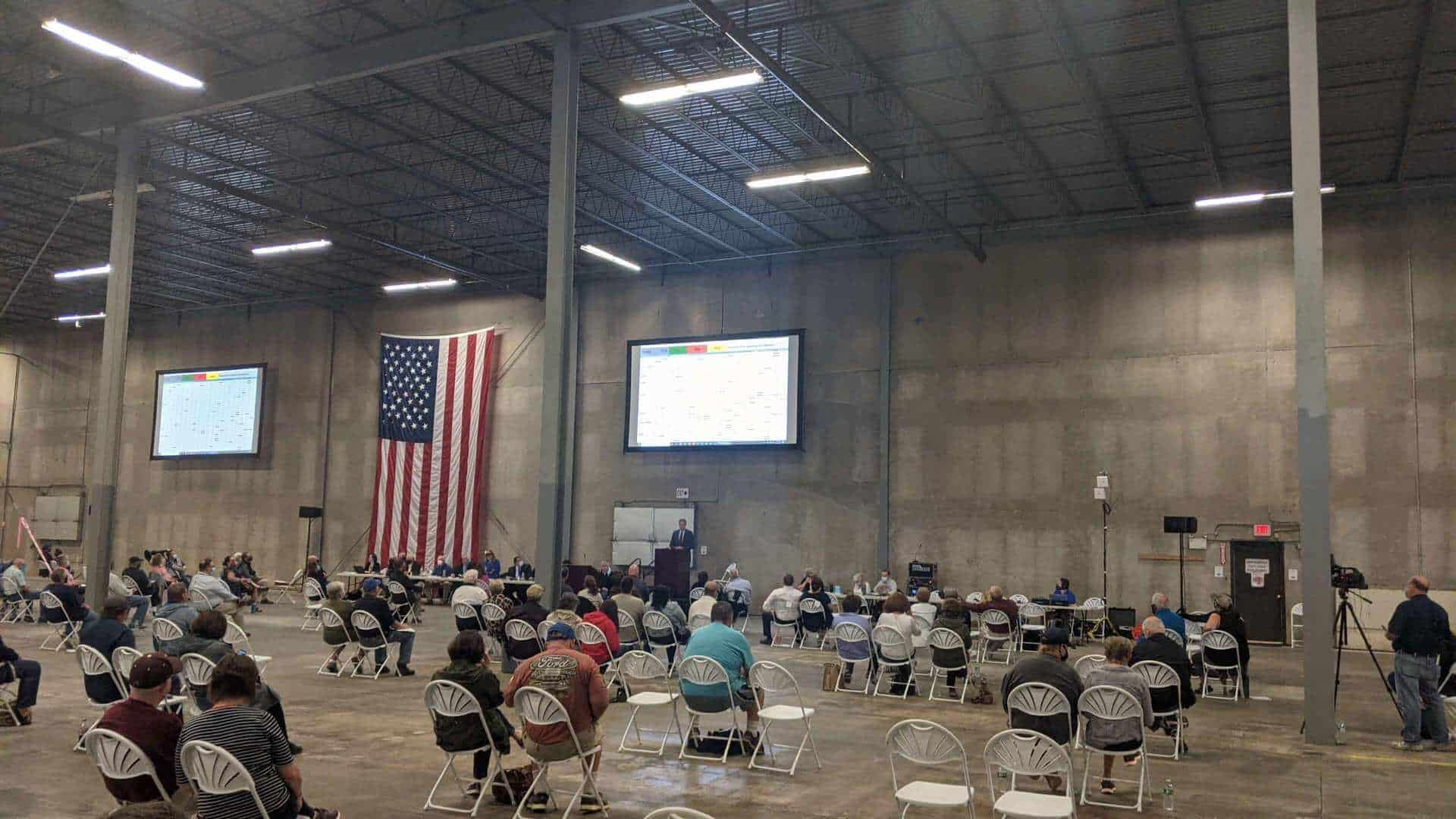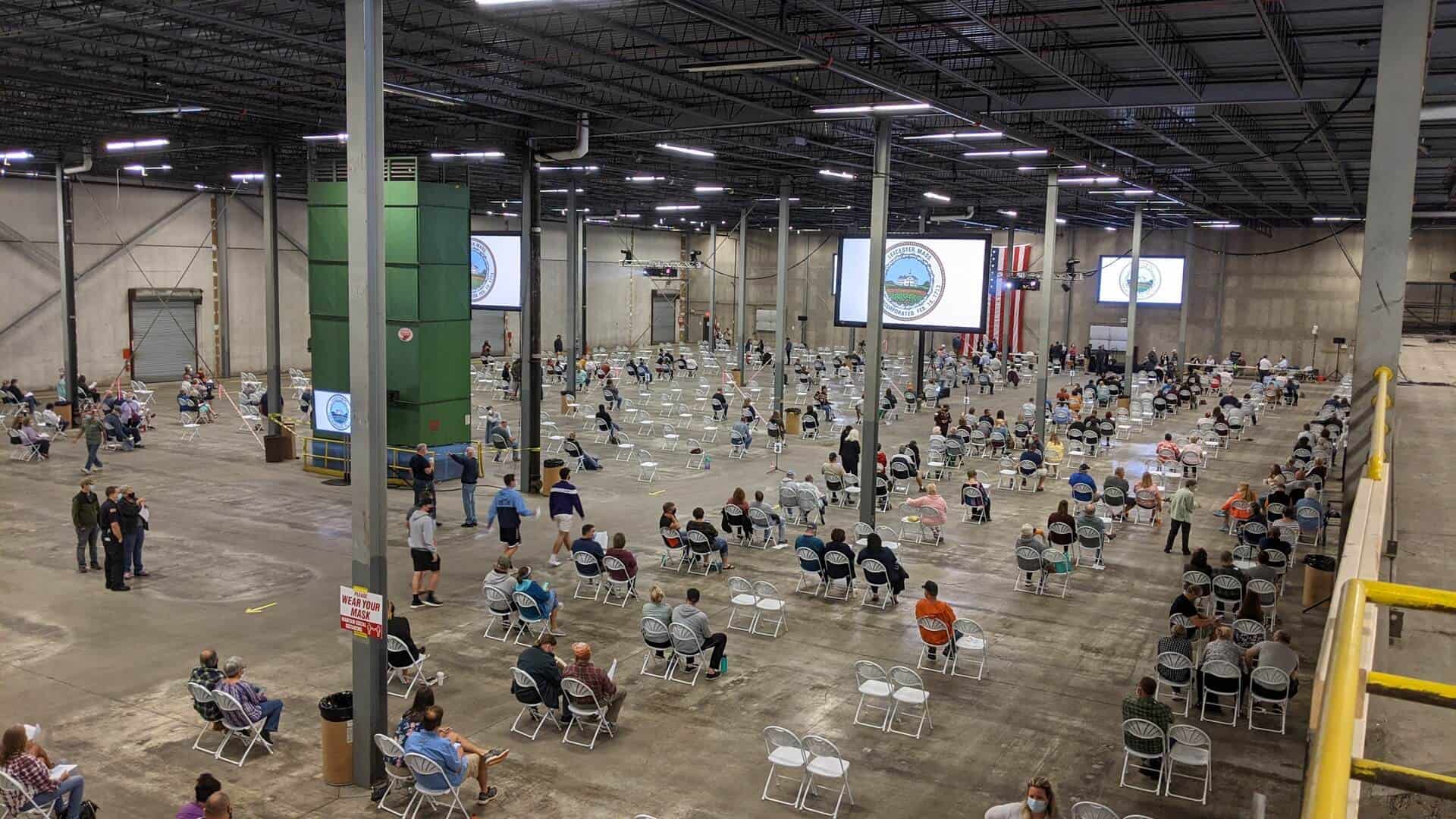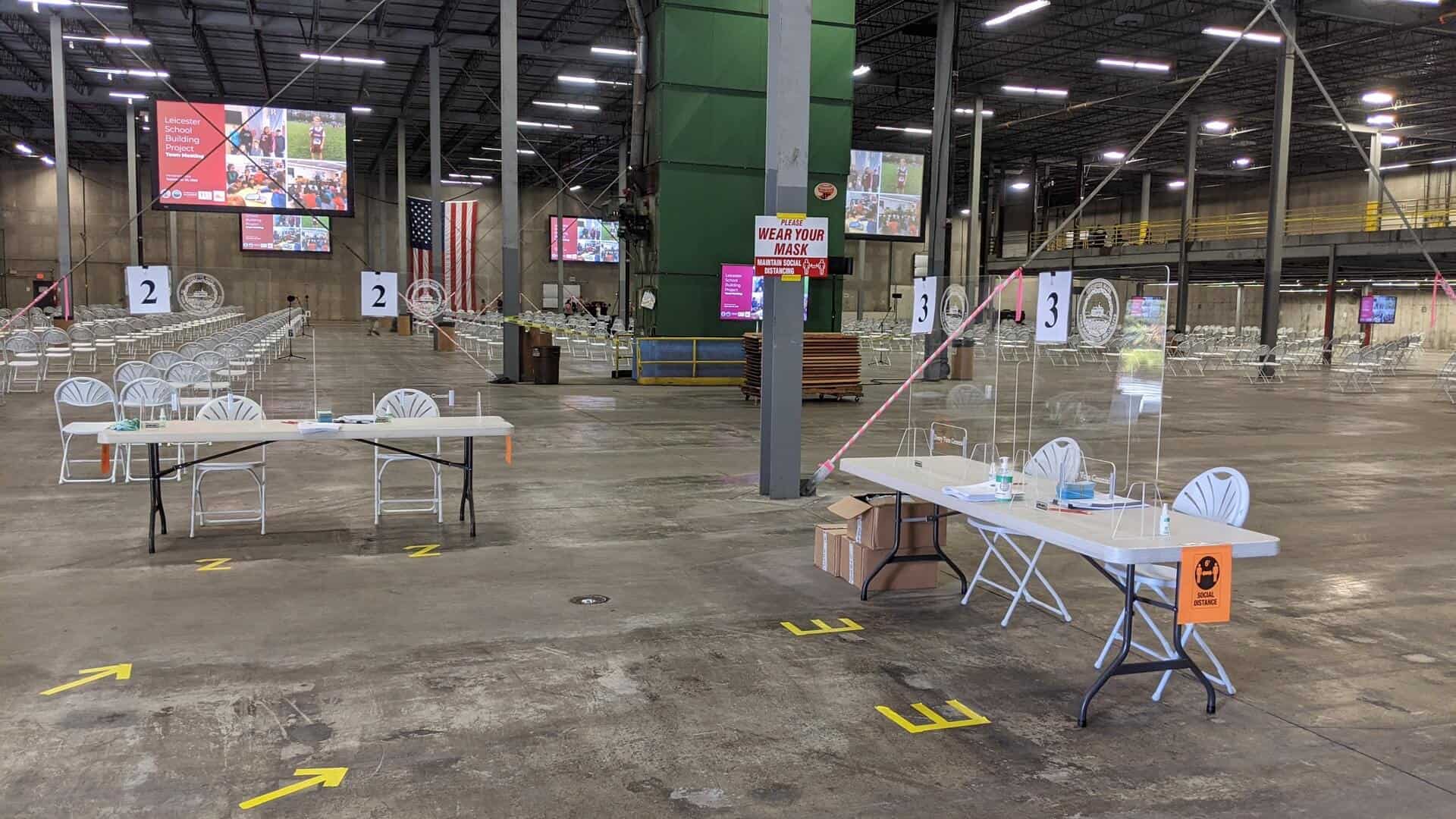Electronic Voting and the 91 Million-Dollar Question
How expensive is it to hold a town meeting?
Surely not as expensive as building a new school. But when voting on big-budget items, vote integrity, security and privacy, as well as COVID-19 restrictions are in play, Town of Leicester pulled out all the stops, rolled up their sleeves and with very little sleep ahead of the “Big Meeting”, they put on a spectacular event.
The residents of Leicester, MA got together on September 26th in record-breaking numbers to vote on a proposition to borrow $91 million to relocate one of their schools. Normal town meetings in Leicester draw the hard-core voters – about 150 to 200 of them every time. This time, the town council expected a blowout. And blowout they received – over 800 residents came out to voice their opinion.
The only way to handle these kind of numbers was to use their electronic voting system, but there were a few challenges:
- How do you maintain COVID-19 safety precautions?
- How do you cover a large venue in reliable radio-frequency signal?
- How do you ensure that the voting system is perceived as unbiased?
Town Meeting (and Electronic Voting) in the COVID-19 Era
These days, with COVID-19 restrictions firmly in place, many considerations had to be made to accommodate a potential of 1,000+ meeting attendees coming in.
First, a large enough space had to be booked and thoroughly cleaned and spaced seating had to be planned on multiple levels of the building.
The town anticipated a large crowd, so they set up multiple Voter Registration Stations according to CDC safety guidelines. The seating was spaced by 6 feet and residents could choose between sitting alone, or in couples; downstairs or on the ‘mezzanine’ level.
Second, organizers collaborated with Meridia on how to best replace the classic voting cards with a secure, reliable, and fast electronic voting system, so that the residents can feel represented and to ensure that each person’s vote is private.
The office of Town Clerk already owned and frequently used the Meridia clickers at the regular town meetings, so some of the attendees were comfortable with both the software and hardware. But this meeting was different. It was very clear that it will be contentious and that they cannot allow for any doubt of unfairness to creep into the meeting, so they hired Meridia as an independent, third-party vendor so that any of these fears can be quelled.
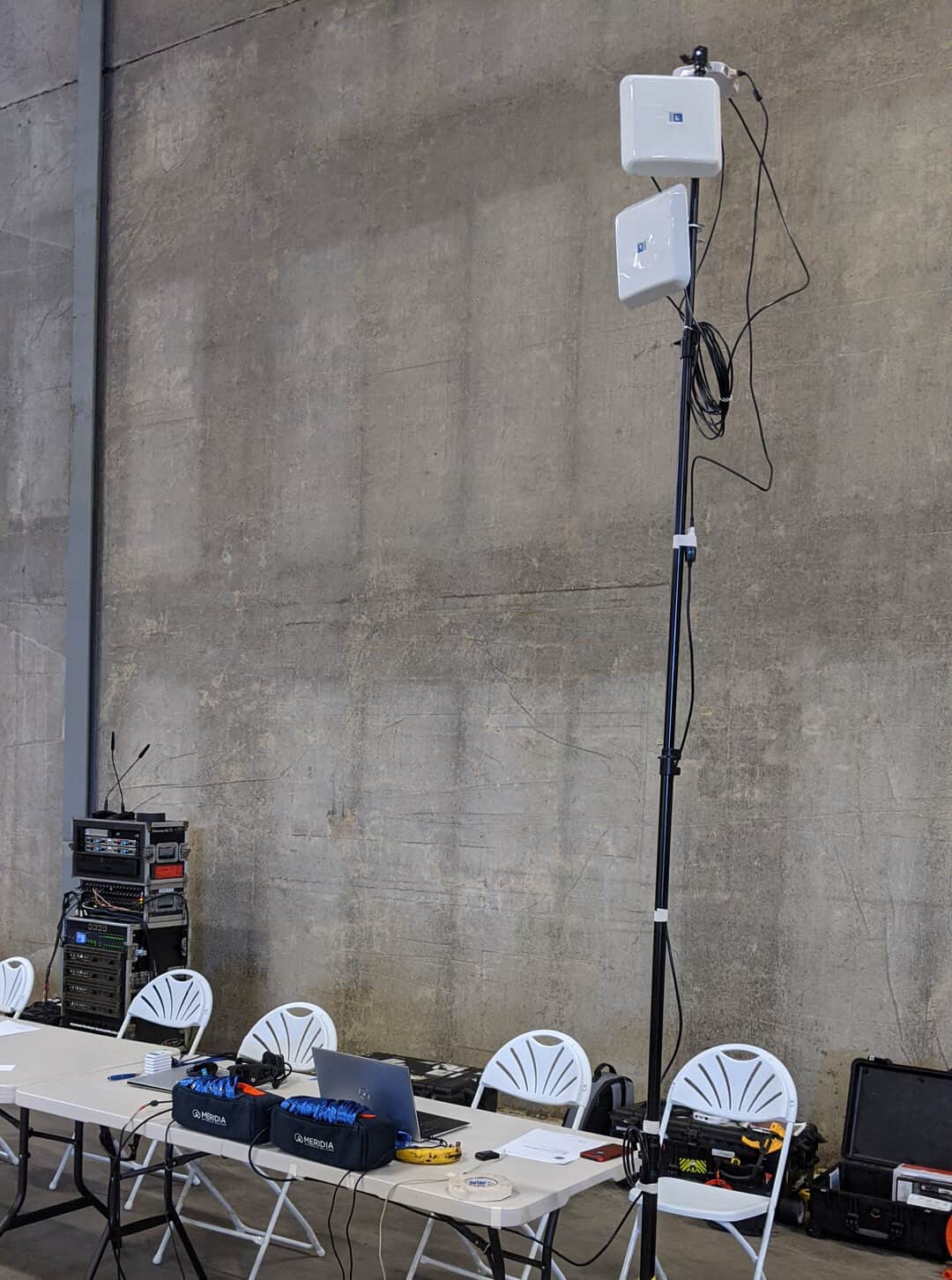
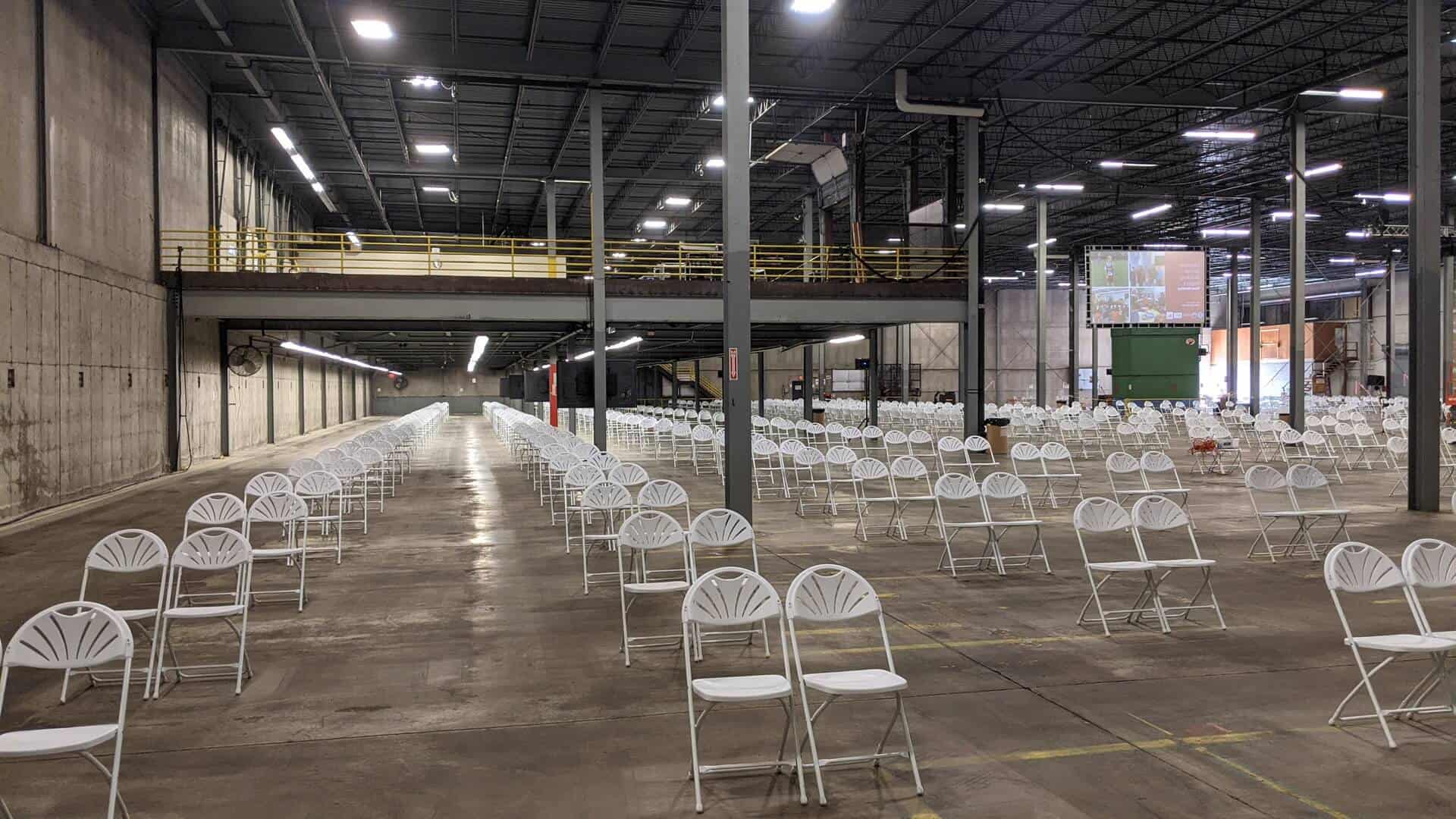
Audience Response on a Large Scale
From the electronic voting perspective, our first challenge was to cover the large, mostly concrete & metal venue, including an area below and on top of a ‘mezzanine’ level without making seating very difficult for the organizers and attendees.
Once on site, Meridia set up a system that covered the entire 80,000 square-foot warehouse, even outside the doorway and by the facilities. We tested the speed and coverage from every corner and confirmed that all 1,200 votes (planned as a contingency) can be collected in less than 30 seconds.
To get everyone, even the 600+ newcomers, comfortable with the electronic voting system, we had two fun test questions before the big budget vote.
Everyone enjoyed their vote being counted in secret, watching the screen populate with “voted” indicators and when the vote was closed, the final tally was shown.
The school relocation budget did not pass, but that is what 2/3 of the residents wanted and that is how a democratic process works!

